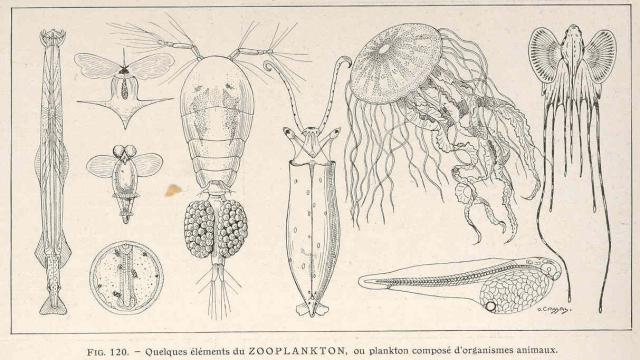It’s nice to think we’re part of something bigger. And we are, really – in a cosmic, evolutionary sense.
A team of researchers from the United States and New Zealand took a look at how likely species were to go extinct and how likely new species were to appear during a 60-million-year period, long before humans evolved. Upon analysing fossil data, it seemed to them as if astronomical cycles led to climactic effects that ultimately aligned with new species of plankton appearing and going extinct on Earth.
“Our results… show that known processes related to the mechanics of the Solar System were shaping marine macroevolutionary rates comparatively early in the history of complex life,” the authors write in the study published today in the Proceedings of the National Academy of Sciences.
The researchers looked specifically at data on 1,794 fossilized species of zooplankton, and how they appeared and disappeared during the time period from 481 million to 419 million years ago. They compared this to their model of Milankovitch “grand cycles,” regular changes to the shape of the Earth’s orbit around the Sun that occur every 1.3 million and 2.6 million years, that may have had effects on the climate. They thought these cycles could explain statistical changes in the number of new zooplankton species appearing and going extinct.
These are correlations that rely on models and data from millions of years ago, so it’s probably smart to take these results with a grain of salt. The researchers mention several places where there’s more work to do, specifically regarding what aspect of the orbital cycles caused which effects on the plankton.
Others agree. While he found the study interesting, Paul Wignall from the University of Leeds told Gizmodo that he’d like to see followup studies of climate and environmental changes during this period that could have resulted in speciation and extinction events. He’d also like to see if these cycles persist among a broader range of organisms.
But perhaps it’s not so outlandish to think that cosmic forces could be driving species turnover. Just last week, scientists hypothesized that the orbits of Jupiter and Venus planets could have an influence on our planet’s climate. At least one scientist was impressed with what this paper said about the distant past.
“The stunning thing about this new study is that it’s not looking just a few thousand or million years in the past, but over 400 million years into the distant reaches of time,” Stephen Brusatte, paleontologist at the University of Edinburgh, told Gizmodo, “back when the first complex organisms were establishing modern-style food chains in the ocean.” He was excited about how studying the fossil record, like these scientists did, could help further our understanding of the forces driving evolution.
So, astrology aside, cosmic forces actually might be influencing life here on Earth. How and why, we don’t quite know – but it’s safe to say Earth’s history is influenced by more than just the Moon and the Sun.
[PNAS]
